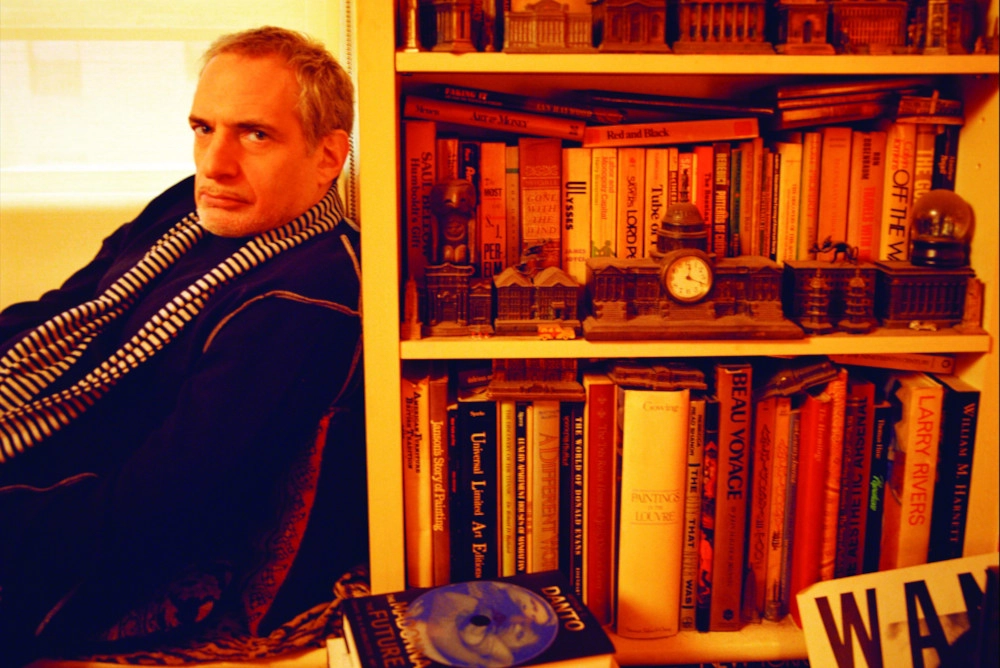When SPIN catches up with Donald Fagen on a Thursday morning in late September, the conversation initially turns to — what else? — baseball. Namely, the Yankees’ chances of nabbing an American League wild card spot in the playoffs. That’s when Fagen reveals his personal connection to the Bronx Bombers as a child growing up in Kendall Park, New Jersey.
“I played for the Yankees in Little League,” he says. “The Colonial Esso Yankees. You know, like the gasoline.” He laughs. “There was another team sponsored by the 7-11. They were our greatest rivals. But you know, I wasn’t that good. Especially when they gave me bifocals when I was nine years old. That kind of ended my baseball career.”
Thankfully, the young Fagen eventually found another. It’s now been just shy of a half-century since Steely Dan, the band he formed with his Bard College friend Walter Becker, released its debut album, 1972’s Can’t Buy a Thrill. Throughout the rest of the decade, the group – anchored by Fagen on vocals and keys, with Becker on bass and, later, some guitar – cut a smooth and highly sardonic path through the music landscape, staking their claim as one of the more sophisticated and idiosyncratic acts of that or any era.
The two went their separate ways in the early ‘80s, after which Fagen released his platinum-selling solo debut, 1982’s The Nightfly. In the following decade, he and Becker reunited for another run that lasted until Becker’s passing in 2017, following a battle with esophageal cancer.
Today, Fagen continues to lead a road-tested version of the Dan, and he’s just released a pair of live albums: Northeast Corridor, a set of classic Steely Dan tunes, and The Nightfly Live, a full-album concert performance of his solo debut, backed by the same Steely Dan band. He’s also returning to the road later this month for a tour with a rather Steely Dan-esque-title, Absolutely Normal.
He sat down with SPIN to talk playing (and singing) live, building his own version of the Andrea Doria and the continuing — and, at least to him, somewhat unexplainable — appeal of Steely Dan.
SPIN: How did the new live recordings come about?
Donald Fagen: What happened was [Steely Dan] were almost at the end of a tour in 2019, [and there were] like 16 shows left, mostly in the Northeast. The band had been out for a month or two, and it sounded so good. So I asked the front-of-house mixer, this guy Michael “Coach” Conner, if he could make a professional recording off the board. He said, “Well, I gotta get a few pieces of equipment, but yeah.” So he recorded the last 16 shows of the tour, and one or two of those was the nights we played The Nightfly album straight through. I was really surprised at how good they sounded and how beautifully recorded they were, with lots of separation. It didn’t sound like the usual reverb-y live record. So I thought, “I should do something with this…” And I’m glad I got the chance to document the band at its peak.
I recall you saying in an interview a few years ago that you hadn’t even listened to The Nightfly since you recorded it, to paraphrase a Steely Dan line, way back in…’82.
That’s true. So yeah, when we started doing it onstage, having to learn all those chords again was…tedious. [laughs] But the band loved playing it because it was a challenge. And it’s a little stressful playing a whole album through without stopping because you don’t want to mess it up. But when we finished the last tune, the audience would freak out because we actually made it!
Full album performances have been a big part of the Steely Dan live repertoire in recent years. It seems people, or at least your people, still appreciate hearing the music presented to them in this way.
Yeah. And you know, albums, the form still exists. But it’s not exactly something that people think about as much as they used to.
Do you think it’s a form that will continue to exist, or does it appear to be on its last legs?
I really don’t know. I couldn’t say. I know that as a form, it was a really excellent form, with the Beatles and Dylan and all that. And there were obviously some attempts even earlier on to do it — I think Frank Sinatra, for one, was really interested in the album format with things like [1958’s] Come Fly with Me. So I think it’s great. I hope it continues.
You’re planning on doing some full album performances on the upcoming Absolutely Normal tour. I’ve seen dates that advertise Gaucho, The Royal Scam, Aja…
Yeah. I think we’re doing album nights. I’d have to check where. I think it’s mostly when we’re doing residences in one city — like, we’ll do three shows in Philly or Boston, and one or two of the nights we’ll play an album for the first half of the show.
Clearly there’s nothing normal about launching a tour in 2021.
No! I don’t know what to expect, really. You know, everyone has to get vaxxed and all that kind of stuff. My wife and I just got our boosters the other day, so I’m as prepared as I can be. We’ll see.
The Northeast Corridor record includes a rendition of your 2003 song “Things I Miss the Most.” Today, it almost reads like a pandemic song, with its lyrics about sitting around the house and pining for the past: “I’m learning how to meditate / So far, so good / I’m building the Andrea Doria out of balsa wood / The days really don’t last forever / But it’s getting pretty damn close.” Over the past 18 months, we were all at home building our own version of the Andrea Doria, in a sense…
You’re right about that. Exactly. I guess mixing the two live albums during the quarantine was kind of my Andrea Doria project. [Laughs.]
It seems like Steely Dan nudges its way back into popular culture every few years. Recently your song “Dirty Work” was used as the centerpiece to The Suicide Squad film trailer. Did you have any involvement in that placement?
No. Over the years, management will send me stuff to approve because someone will ask for a license for a song, and we get a little fee. I’ve kept out of the advertising world, which, probably some millennials think I’m a fool for not cashing in. My feeling is always: If it’s used to endorse a product, why should anybody ever believe anything I have to say after that? But I approve most of them for films. It’s supporting someone’s story, and that’s okay with me. Unless it’s porn or something.
An almost 50-year-old ballad about a man being used for sex by a married woman doesn’t exactly seem like the obvious choice to soundtrack a DC Comics superhero movie trailer. And yet…
[Laughs.] I guess just the idea of dirty work is something that hooks up with their plot, you know? But I saw the trailer and my thought was, “Hey, why don’t you put it in the actual movie so I can get a slightly higher fee?”
So to what would you attribute this latest Steely Dan mainstream revival?
You know, during some eras we’re vilified, and then others, all of a sudden things perk up. I don’t know exactly why. Actually, I did an interview for, I think it’s The Ringer site, and the guy was asking me, you know, why is this happening now with younger and younger people getting into the band? And the only thing I could think of was, “I don’t know!” It’s like, maybe their dad played it when they were a kid, and as they were evolving into adults it somehow popped back into their heads.
I’m sure some younger fans are attracted to the inherent “outsider-ness” of Steely Dan’s music, and in particular the characters sketched out in the lyrics. At the same time, in a culture where everything is routinely pushed to the limit, there’s something almost subversive in listening to music that, at least on the surface, sounds like the ultimate boomer experience — smooth, jazzy, no rough edges.
Yeah, I guess so. I mean, sometimes it’s lumped in with the, let’s say, “dad rock” scene. For me it doesn’t have a lot to do with that. But maybe I’m wrong. And you know, we were kind of on the cusp of the counterculture and whatever happened afterwards, in a way. There were things Walter and I admired about a bunch of kids trying to find some alternate way of living. On the other hand, even at the time we were well aware that it was something that would fail miserably. [Laughs.] And then there’s the backlash, which is still in operation.
Do you see Steely Dan’s expanded appeal reflected in audience demographics at the shows?
Yeah. There’s a lot of college-age kids, and more women, too, which is great. Because historically we got a lot of guys — you know, nerdy Jewish boys — so it’s nice to see some chicks dancing in the front row.
You said earlier that playing this music is challenging. There are a lot of chords, a lot of changes, a lot of harmonic content. Do you find you’re still discovering new things about the songs by playing them live?
Oh yeah, sure. Originally, everyone could sight-read, and they learned off charts. I’ve never really depended on charts, so if I haven’t played a tune in a long time, I have to relearn it. And when I’m relearning it, you know, I’ve forgotten the circumstances of what was going on when I was composing it. And so the chords seem different to me, you know? But that’s okay, because while the other guys are playing [composed] parts a lot of the time, I’m kind of a free agent. I can do whatever I want. It’s almost like a kind of Count Basie role, where I can do little hits and flourishes and stuff like that. And that’s really fun for me.
In past interviews, you’ve talked about how, during Walter’s last few years with Steely Dan, he wasn’t necessarily as involved in the music due to the fact that he was battling illness. That being the case, could you envision ever doing any new Steely Dan material in the future on your own?
Walter didn’t really want to write so much in the last few years because he was not feeling that well. But there’s probably 20 things that we were working on. Some were finished, some we never quite finished. So it’d be interesting to look at those. Although I would certainly never presume to write a Steely Dan song again because that was me and him, and that’s that. But actually, over the quarantine, I managed to write almost an album’s worth of tunes for a solo album. So that’s more what I’m looking forward to.
Just a few years after your debut, Steely Dan ceased playing live and started functioning solely as a studio concern. But since getting back together, you’ve been a pretty consistent touring act.
We’ve been out since ’93, for the most part. And the band we have currently, we’ve been together pretty much for almost 20 years — much longer than the original group was ever together. So it’s a great band, and it’s almost telepathic the way the guys understand the groove. They’re well-trained; they’re all jazz musicians, and they can play anything. Which is something I always wanted — something Walter and I always wanted.
How do you feel about playing live these days? Is it more out of necessity due to the cratering of the recorded music business, or do you just have a newfound love for it?
Now, it’s just about perfect. We’re not, like, intensive road hogs, but we like to go out in the spring and the summer and the fall. So it’s great. What I really enjoyed was a couple years ago when I went out with this other band, the Dukes of September, which was me, Mike McDonald and Boz Scaggs. That was actually even better because it was split between three lead singers. It was like the perfect amount of singing, and it was fun ‘cause it was easy. [Laughs.] Now I have to sing for two hours.
At the beginning of Steely Dan you were unsure about taking on the role of lead vocalist. Is there a part of you that still doesn’t think of yourself as the singer in a band?
I mean, I’m much more confident now, and I’ve also had a little bit of coaching. I think vocally I’m a little stronger now than I used to be too, so I enjoy it more than I used to. But yeah, it’s always this kind of “Actually, I really suck” thing happening.
I guess that never goes away, no matter how much experience or success you have.
Yeah. I try to ignore it, but…





